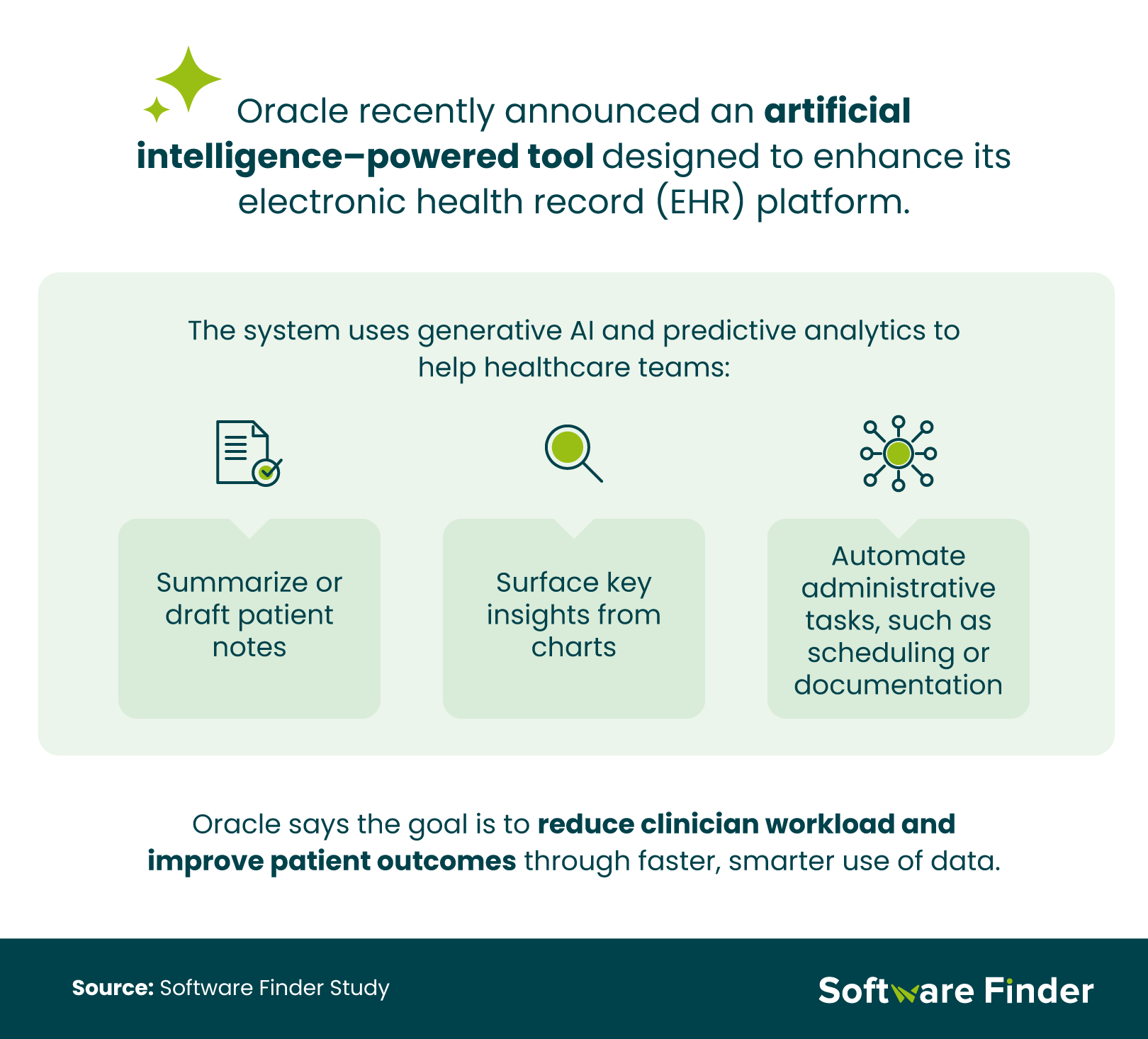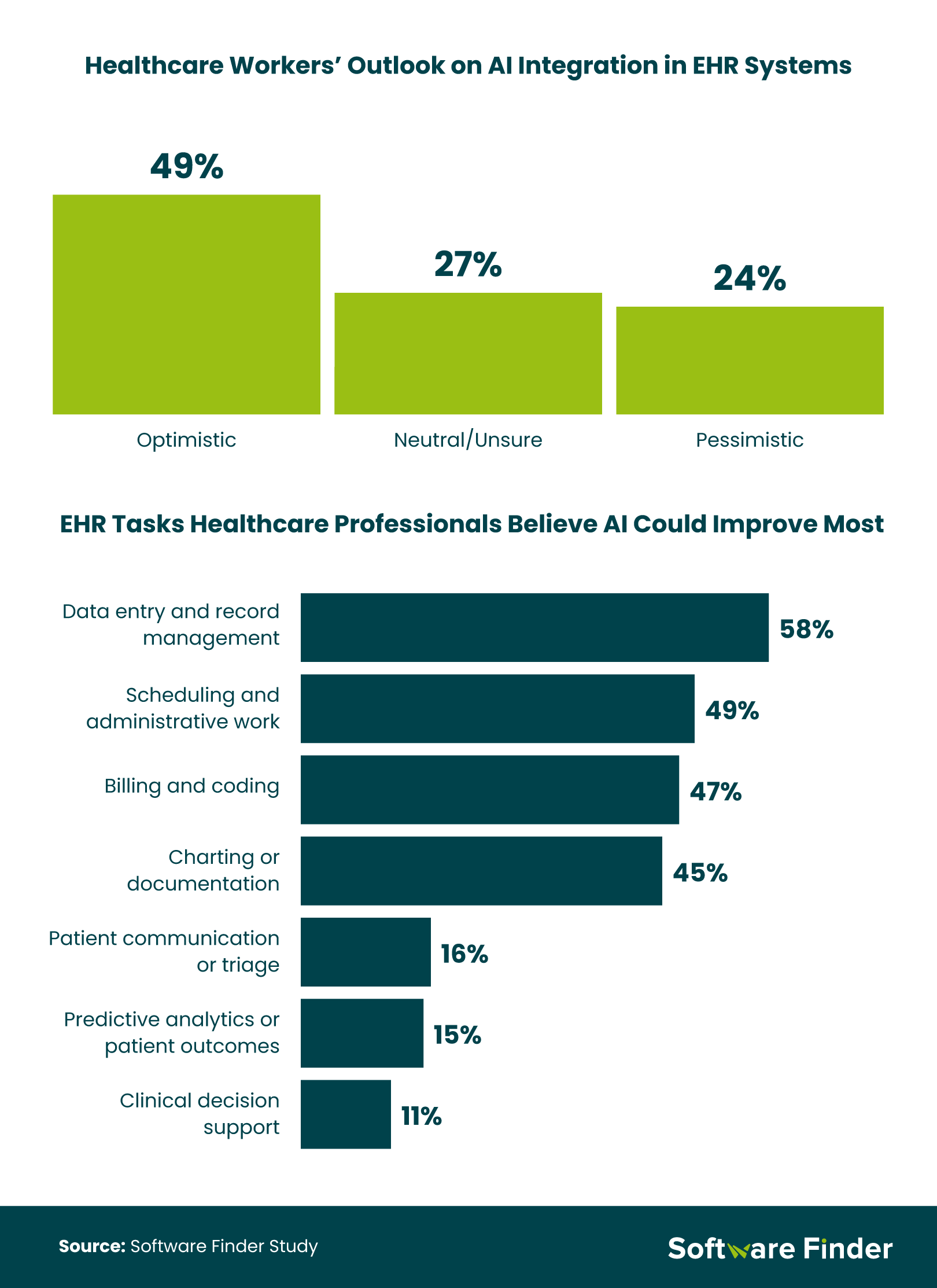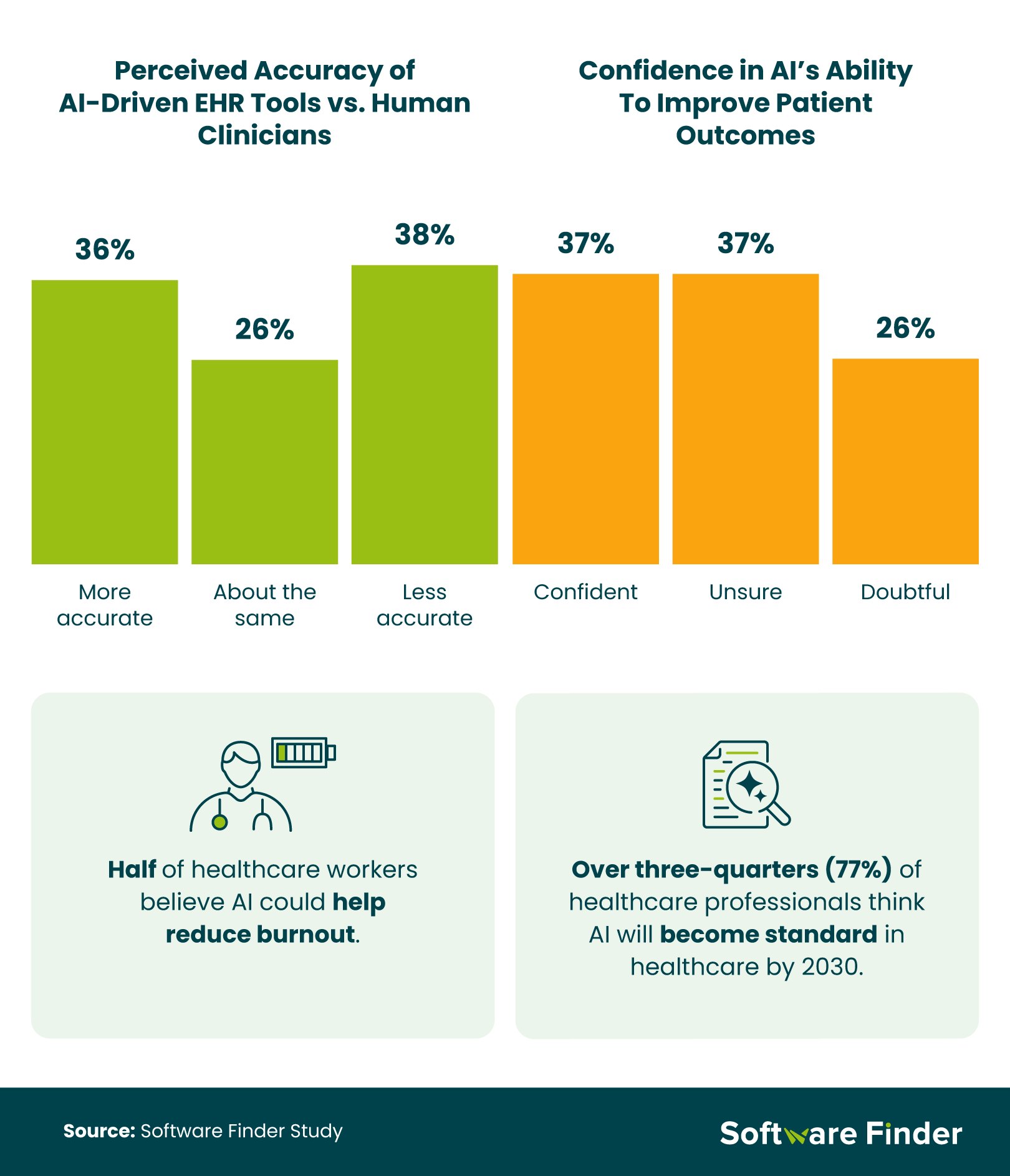Oracle's recent announcement of a new AI-driven EHR platform is sparking strong reactions from healthcare professionals.
Designed to reduce documentation burden and improve patient care, the tool promises to automate tasks like note-taking and scheduling using predictive analytics and generative AI.
But are frontline workers ready for it?
Software Finder surveyed 500 healthcare professionals across the U.S. to explore their perceptions, hopes, and concerns about AI integration into EHR systems.
Understanding Awareness & Hesitations Around AI EHR Tools:

- 66% of healthcare professionals said this was their first time hearing about Oracle's AI-driven EHR software
- 28% of healthcare professionals had heard of Oracle's AI-driven EHR software but knew little about it
- Only 6% of healthcare professionals had read details or were familiar with Oracle's AI-driven EHR tool before the survey

- Nearly 1 in 2 healthcare professionals (49%) are hopeful that AI will improve EHR systems
- 55% of healthcare professionals said AI could help, but only if it's implemented carefully, showing cautious optimism
- 24% said they're skeptical, believing AI systems often overpromise, which points to lingering doubts about their reliability and effectiveness
Top Concerns About AI in Healthcare Systems
- 39% – Diagnostic accuracy or bias
- 34% – Patient data privacy
- 34% – Overreliance on automation
- 31% – Job displacement
- 23% – Lack of clinician control or transparency
- 23% – Compliance and legal risk
- 9% – Cost or complexity of implementation
"Healthcare leaders are open to AI, but they're asking the right questions about safety, accuracy, and trust. The opportunity is huge if vendors focus on real clinical needs and avoid overhyping the tech," shared Adnan Malik, CEO of Software Finder.

- 59% of healthcare professionals believe AI will make their daily work easier.
- 50% of healthcare workers believe AI could help reduce burnout, including 53% of millennials, 50% of Gen X, 50% of baby boomers, and 44% of Gen Z.
- 37% feel confident it will improve patient outcomes, 37% are unsure, and 26% remain skeptical.
- Nearly half of healthcare professionals (47%) trust their organizations to implement AI safely and ethically. In comparison, 29% remain neutral, and 24% express little to no trust in how their employers will handle the responsible adoption of AI.
- Nearly half of healthcare workers have yet to use AI tools, but adoption is growing rapidly, with roughly 40% already integrating them into their daily tasks.
- 77% of healthcare professionals believe AI will become standard in healthcare by 2030.
"There's real momentum behind AI in healthcare, but adoption will depend on how well these tools fit into existing systems," said Shane Elahi, COO of Software Finder. "Hospitals and clinics need solutions that work with their current workflows, and that's where smart implementation makes all the difference."
Methodology
For this study, we surveyed 500 healthcare professionals across the United States to explore how frontline workers perceive the rise of AI-driven electronic health record (EHR) intelligence, such as Oracle's newly announced software.
Respondents were asked about their current frustrations with EHR systems, their expectations of AI-powered solutions, and their trust in artificial intelligence to support clinical workflows, reduce administrative burdens, and improve patient outcomes.
About Software Finder
Software Finder helps healthcare organizations choose the right EHR with confidence. Through tailored recommendations and expert insights, we simplify the selection process so providers can identify platforms that fit their workflows, compliance standards, and patient care goals. Whether upgrading an existing system or exploring new AI-powered solutions.
Fair Use Statement
The information in this article is shared for educational and noncommercial purposes. If you'd like to reference or republish any part of this content, please include proper attribution and a link back to SoftwareFinder.com.
